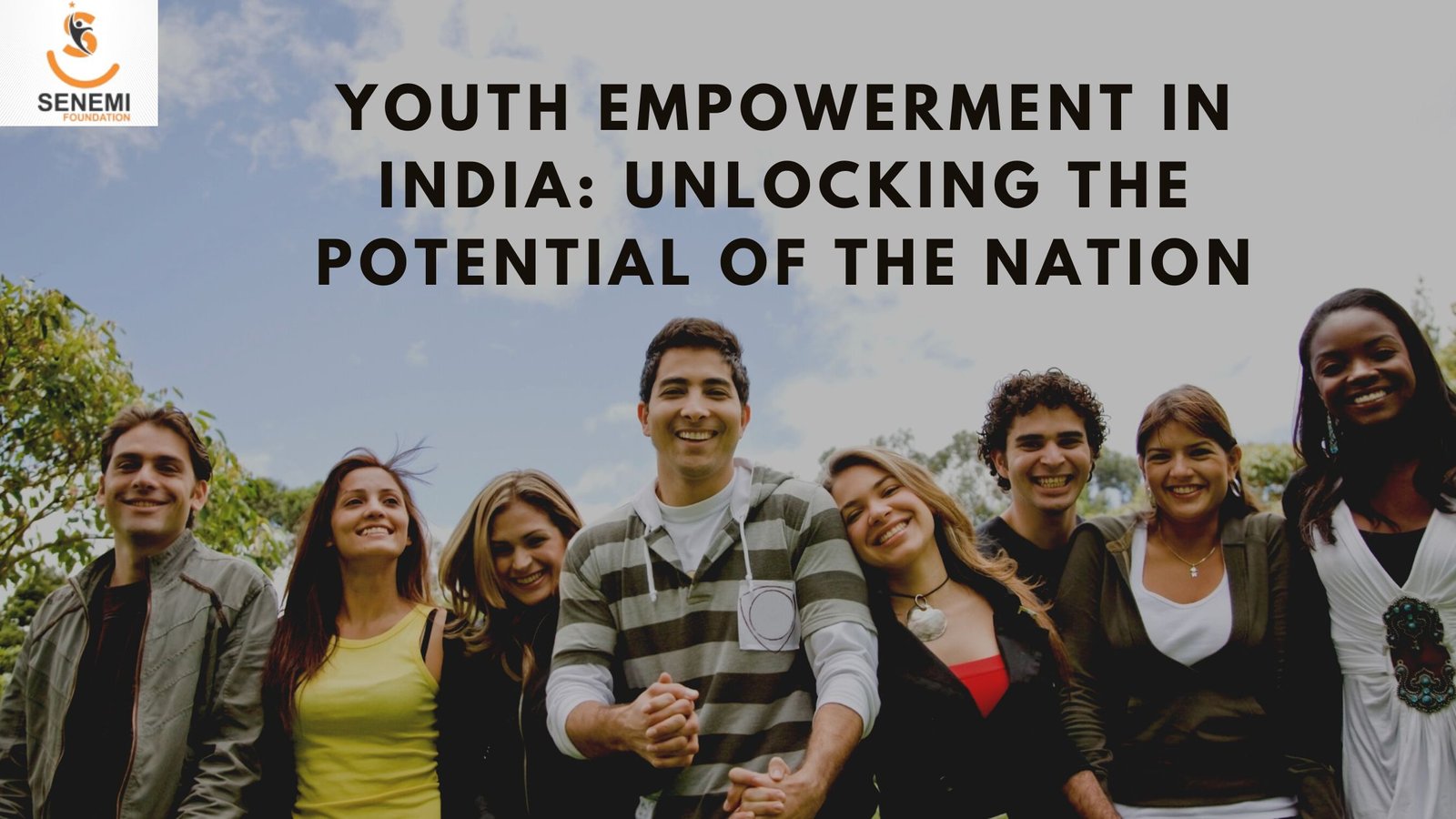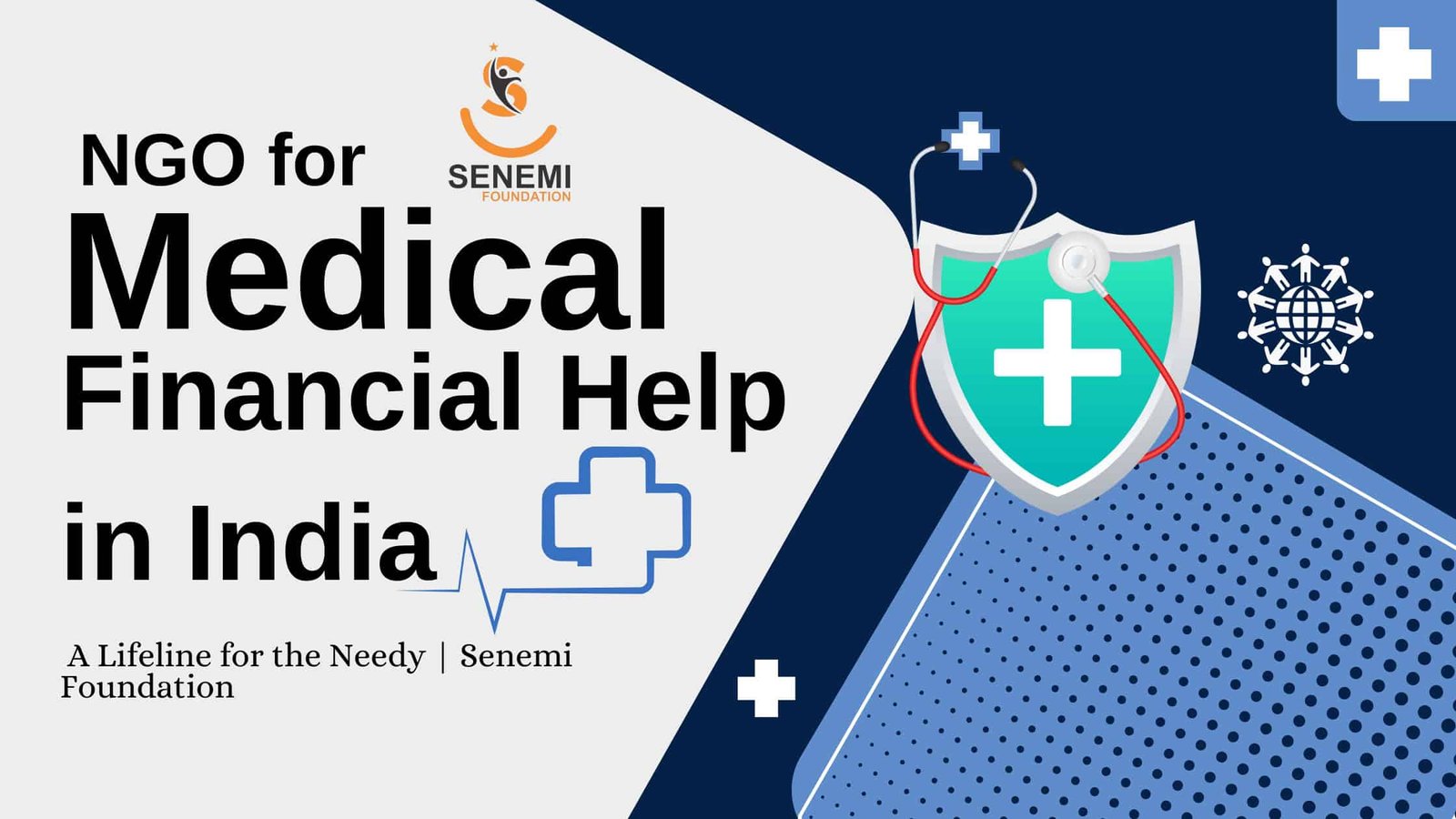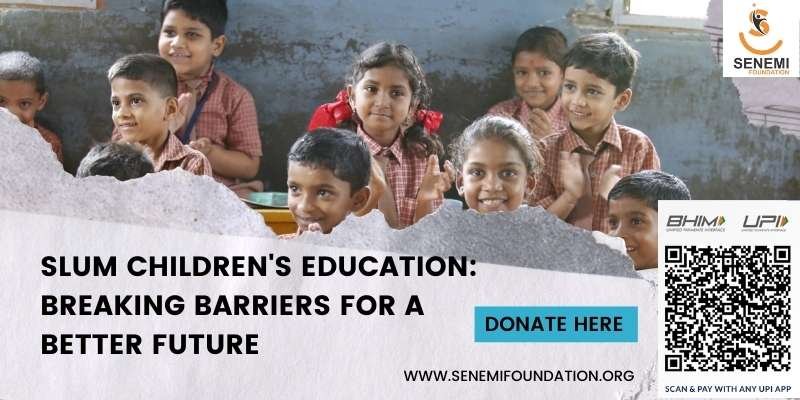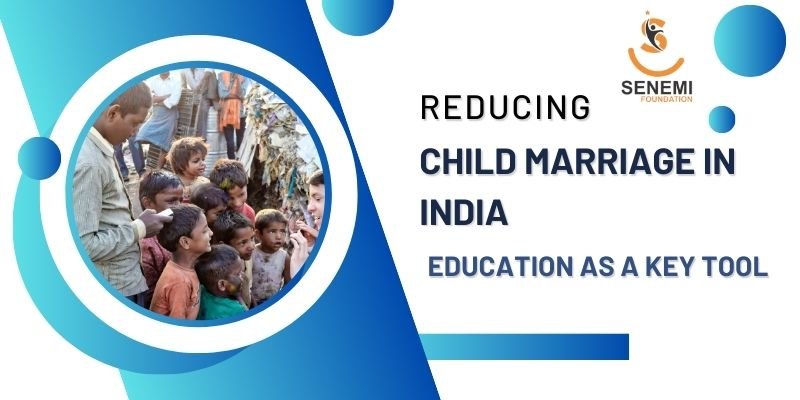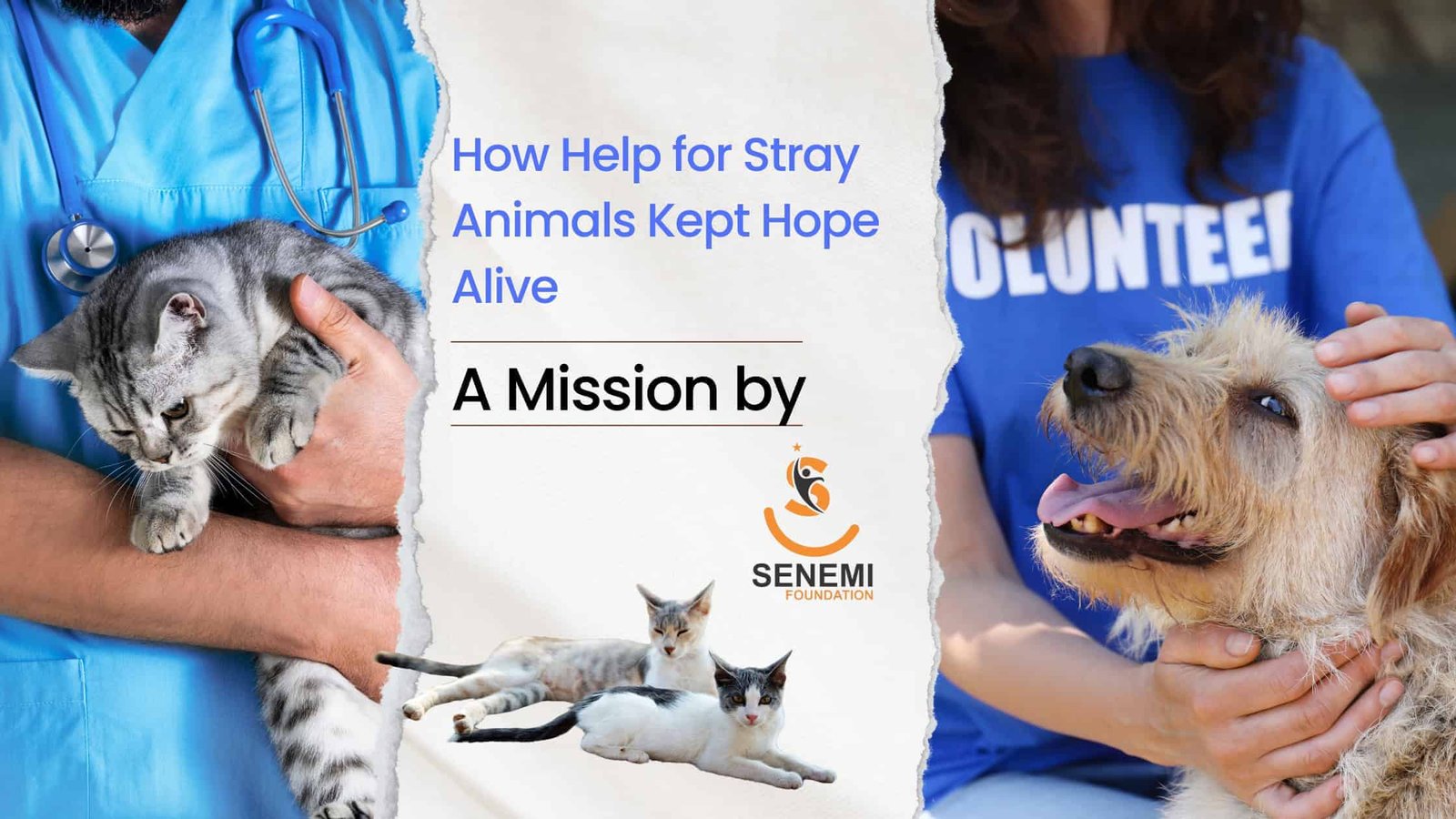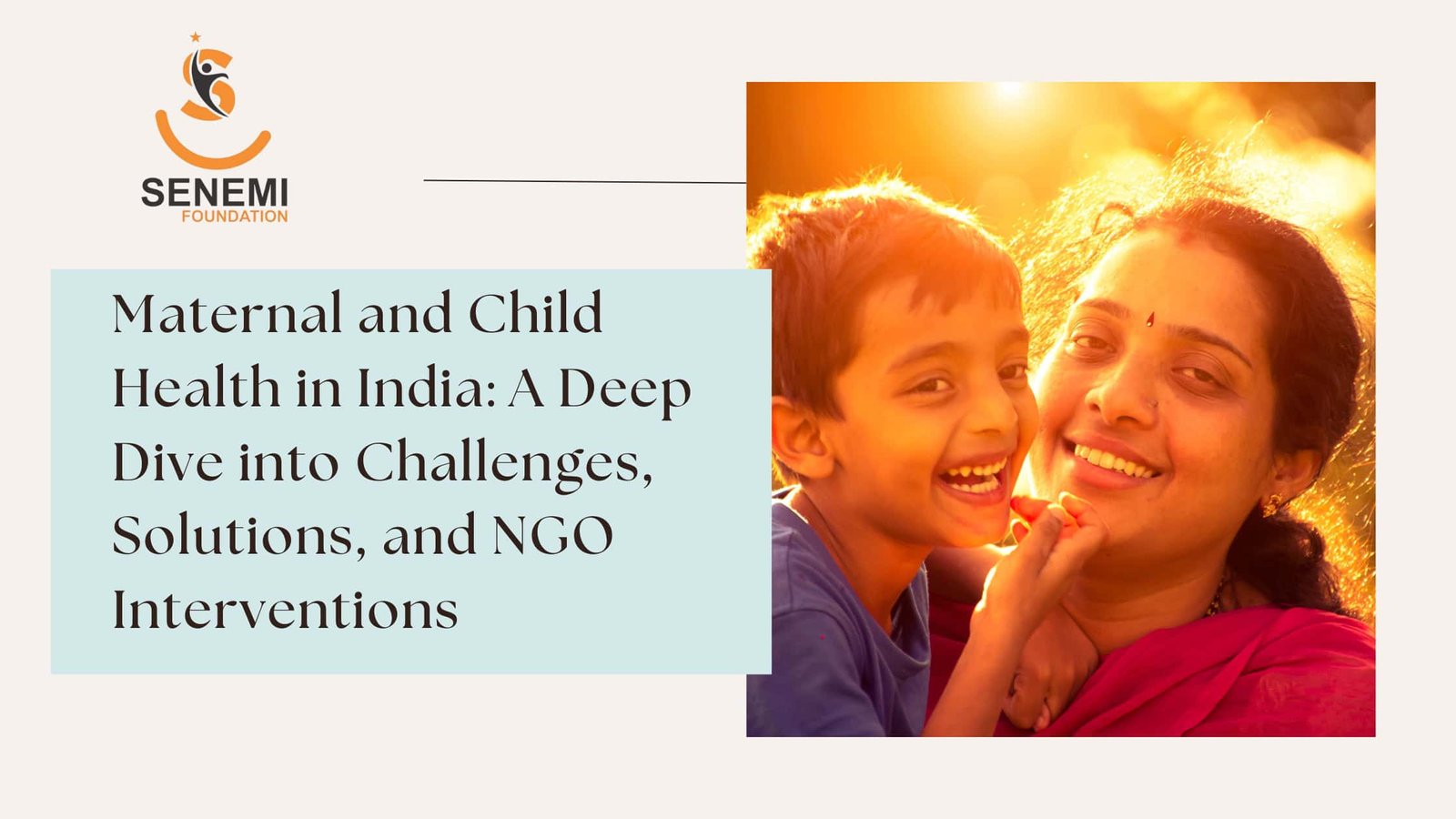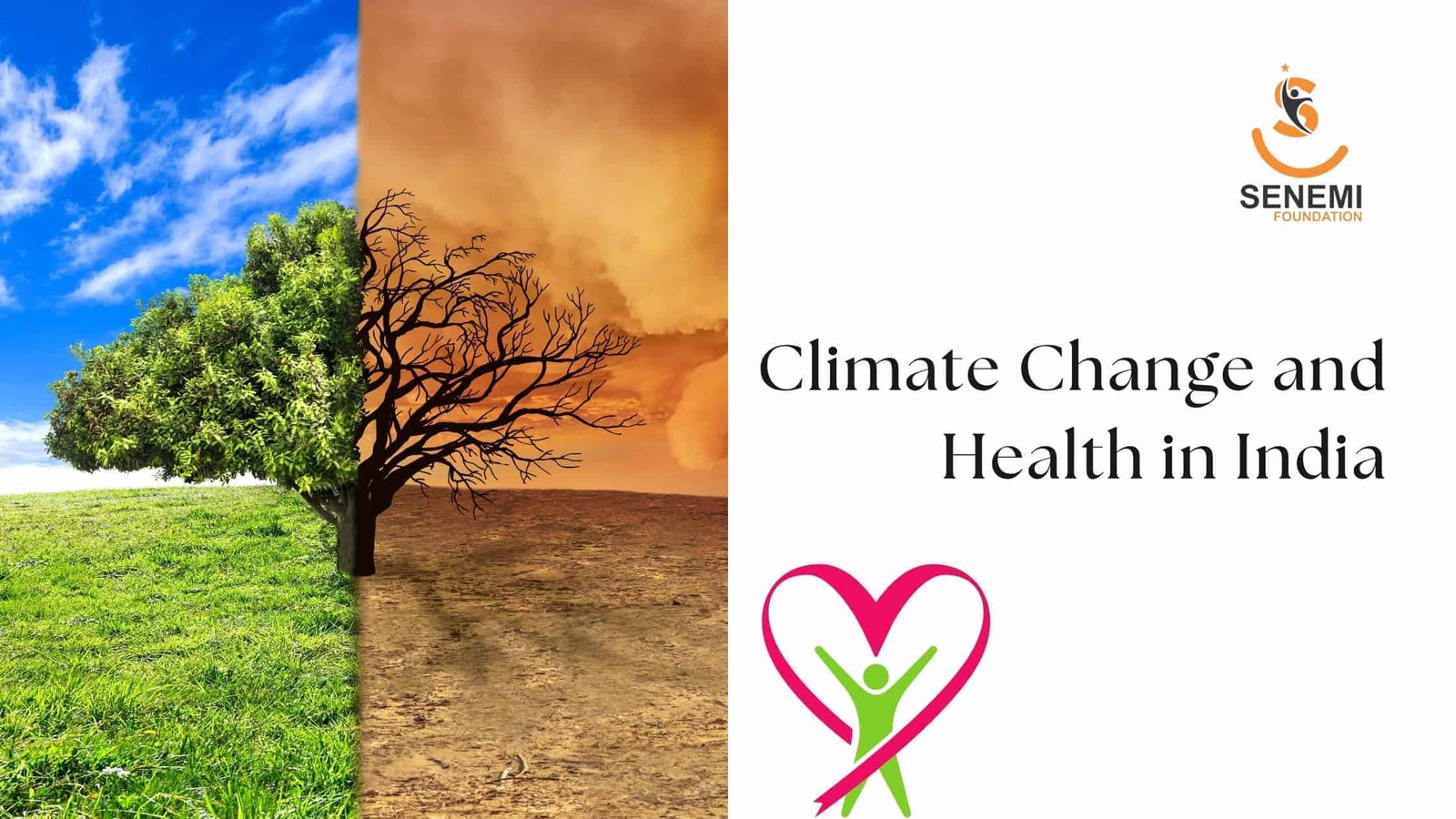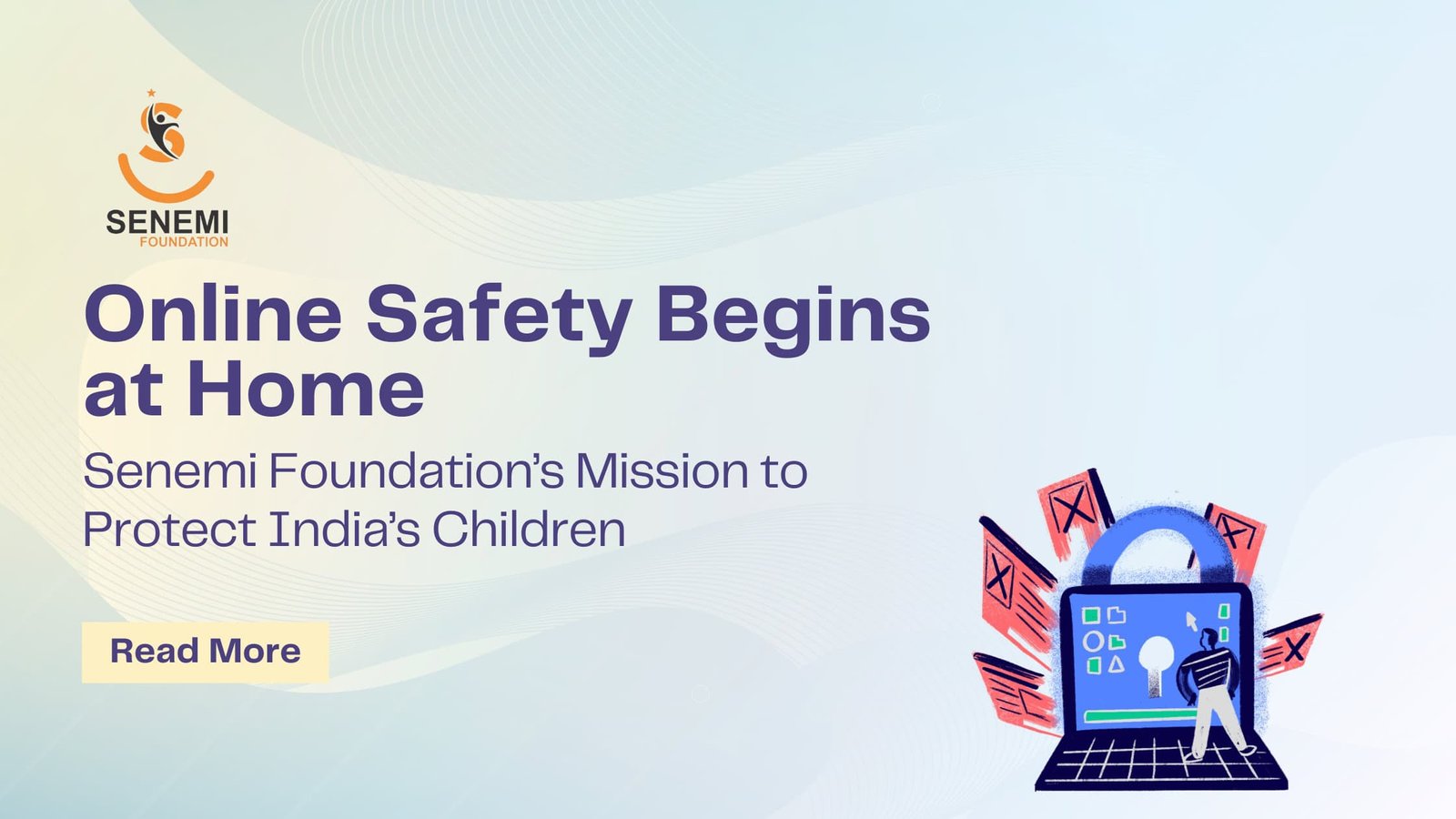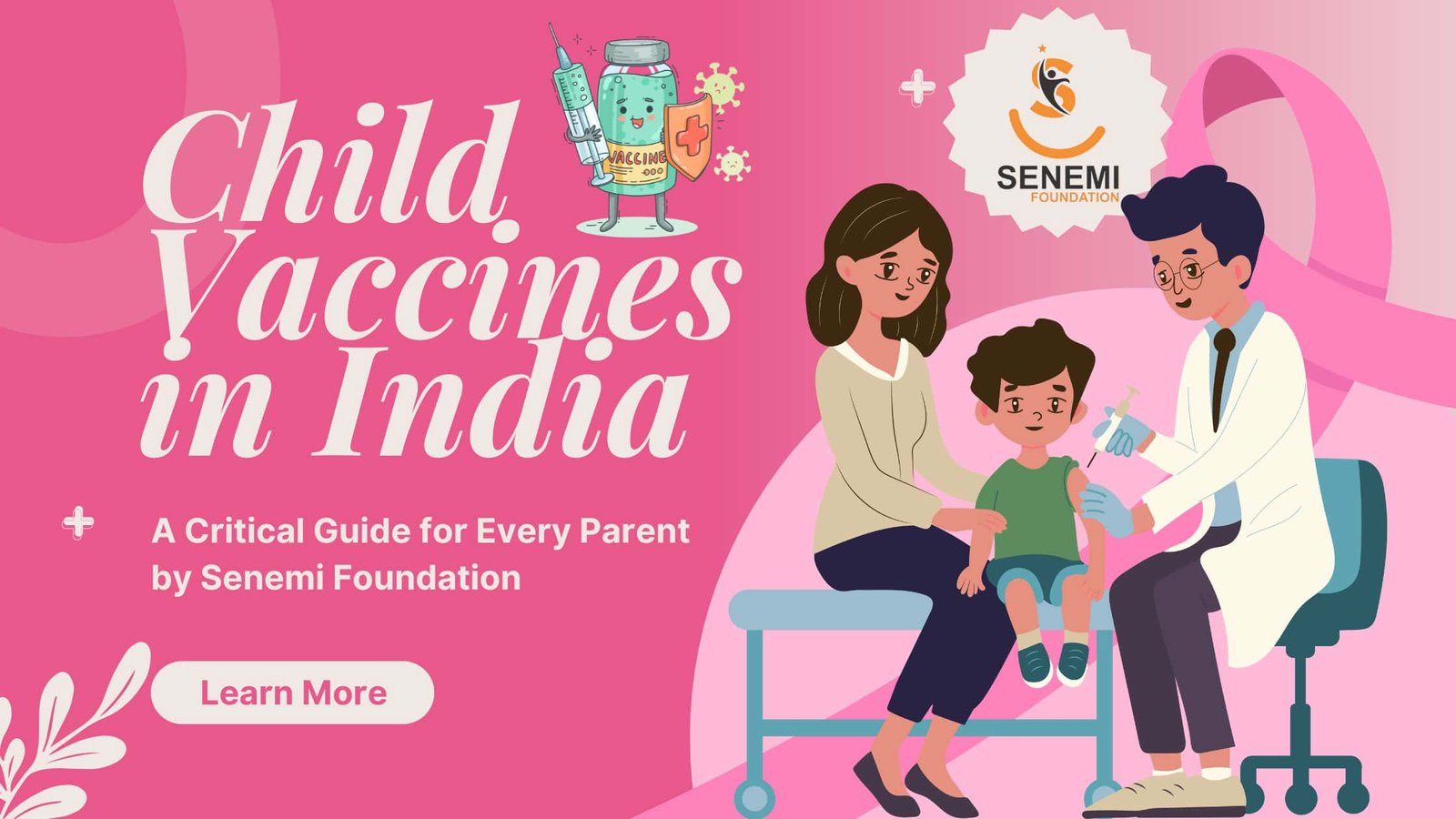

Introduction
Vaccination is one of the most effective public health interventions that has saved millions of children from life-threatening diseases across the globe. In India, where infant mortality and child health challenges persist, vaccines play a pivotal role in protecting young lives. Child Vaccines in India are not only essential for individual immunity but also contribute significantly to community health. Despite the availability of free government services and ongoing awareness campaigns, many children remain unvaccinated due to lack of information, access, or trust.
Through this blog, Senemi Foundation, a grassroots NGO working in Haridwar, Delhi, and across India, aims to demystify the complete child vaccination schedule, explain why these vaccines are crucial, and highlight ongoing efforts to improve child health outcomes.
Understanding the Child Vaccination Schedule in India
A frequently searched query by parents is, “What is the vaccination schedule for children in India?” The answer lies in the national framework called the Universal Immunization Programme (UIP). Launched in 1985, the UIP has since become one of the world’s largest public health initiatives, providing vaccines against deadly diseases free of cost to millions of children annually.
The vaccination schedule begins at birth and continues until the child turns five, covering diseases like tuberculosis, diphtheria, tetanus, whooping cough, polio, measles, rubella, hepatitis B, meningitis, and pneumonia, among others. It also includes newer additions like Rotavirus and PCV (Pneumococcal Conjugate Vaccine) to tackle diarrhea and pneumonia, which remain major killers of children under five in India.
Senemi Foundation runs regular awareness programs in Haridwar and Delhi to ensure parents are informed about when their child should receive each vaccine. Our health camps for children in Haridwar and tie-ups with child vaccine centers in Delhi aim to eliminate missed vaccinations due to ignorance or misinformation.
Why Child Vaccines in India Matter
The second-most common question parents ask is, “Why are vaccines important for kids?” The answer is simple: vaccines save lives. Childhood diseases that once claimed millions of lives are now preventable through timely immunization. Child Vaccines in India are designed not only to protect against immediate threats but also to reduce long-term disabilities caused by infections.
Diseases like polio, measles, and hepatitis B can lead to lifelong complications or even death. The measles-rubella vaccination, for example, not only protects the child but also prevents congenital disorders in future pregnancies. Through pulse polio campaigns, India eradicated polio in 2014 — a major public health victory, demonstrating how consistent vaccination can achieve national health goals.
Senemi Foundation believes that immunization awareness is the first step toward building healthy communities. That’s why our vaccine awareness campaigns include door-to-door sensitization, school workshops, and rural outreach in remote areas of Haridwar.
Government Immunization Program and Its Reach
India’s government immunization program offers a wide range of vaccines under the UIP, supported by organizations like WHO and UNICEF. However, it is the collective responsibility of civil society and NGOs working for children in India, like Senemi Foundation, to ensure the last-mile delivery of these services.
The Senemi immunization program works in synergy with local government health workers and anganwadi centers to ensure timely vaccinations. We often encounter questions such as “When should children be vaccinated in India?” — a concern that reflects the need for a community-based guidance system. We offer vaccination reminder services, digital tracking cards, and community volunteers who assist families in following up on second or third doses, which are often missed.
In Delhi, we have partnered with free vaccination Delhi hospitals to assist underprivileged communities in accessing services they didn’t know existed. In Haridwar, we work with local health departments to reach tribal and rural areas that lack permanent healthcare infrastructure.
Tackling Vaccine Hesitancy and Myths
Despite the availability of free vaccines and strong infrastructure, vaccine hesitancy in India remains a major challenge. Rumors, misinformation, and religious fears often prevent families from participating in immunization drives.
To counter this, Senemi Foundation uses culturally sensitive communication, including vernacular videos, street plays, and testimonials from community leaders to build trust. Our team regularly addresses misconceptions during the child immunization awareness campaigns in India.
We’ve also noticed that parents often ask, “How to get a vaccination certificate for baby?” or “What to do if a dose is missed?” Our trained volunteers in Senemi Foundation Delhi office and Senemi Foundation Haridwar assist families in navigating government systems, accessing e-vaccination certificates, and even arranging catch-up doses.
The Role of NGOs in India’s Vaccination Success Story
The fight for universal child vaccination cannot be won without the active role of civil society. Senemi Foundation child welfare India initiatives focus on ensuring no child is left behind due to caste, income, or geography. In urban slums, we operate mobile vaccine awareness vans, while in rural areas, we conduct child health support camps in association with public health centers.
For families searching “NGO for child health support India”, Senemi has become a trusted name. Our maternal and child health campaigns include nutrition counselling, deworming, anemia treatment, and early intervention in developmental delays.
We also work on state-specific interventions like child vaccination NGO Haridwar outreach and NGO for child health in Delhi, where we link parents with ongoing government and private vaccination efforts. In schools, our campaigns cover not just vaccines but also hygiene, nutrition, and puberty education to ensure holistic child development.
Strengthening India’s Vaccine Future
The future of Child Vaccines in India depends on consistent public participation, informed policymaking, and robust grassroots partnerships. We must address both supply and demand issues — ensuring vaccines are available, cold-chain is maintained, and that parents show up with their children.
Through Senemi Foundation vaccine awareness programs, we also advocate for the inclusion of HPV vaccines for adolescent girls, COVID-19 boosters for eligible age groups, and annual flu shots during seasonal outbreaks. In collaboration with pediatricians and state health authorities, we aim to bridge the trust gap between health systems and communities.
Enhancing Access Through Digital and On-Ground Innovations
One of the promising developments is the introduction of digital vaccine cards and Aadhaar-linked immunization records. Parents are now more empowered than ever to track their child’s vaccine status.
Our Senemi NGO child health vertical has integrated digital reminders via WhatsApp and SMS, especially in urban Delhi slums and rural Haridwar blocks. This helps address a common query: “When should children be vaccinated in India?”
We also conduct workshops that train young mothers on identifying vaccine-preventable diseases and help them advocate for timely care at local health centers.
Final Thoughts: A Collective Responsibility
Ensuring Child Vaccines in India reach every child is not just a healthcare agenda—it’s a national and moral responsibility. As an NGO deeply rooted in communities, Senemi Foundation sees firsthand the transformative power of immunization. From rotavirus and PCV vaccines to pentavalent and rubella doses, each shot administered is a step toward a healthier India.
Parents, caregivers, educators, local leaders, and NGOs must join forces to promote immunization awareness, encourage regular vaccination, and fight misinformation.
If you’re a parent in Delhi searching for a child vaccine center, or in Haridwar looking for a health camp for your child, or anywhere in India needing guidance, Senemi Foundation is here to help.
We believe that every child has the right to life-saving vaccines—regardless of where they are born.
Let’s pledge today to ensure Child Vaccines in India reach every child—on time, every time.
 Deepak
Deepak